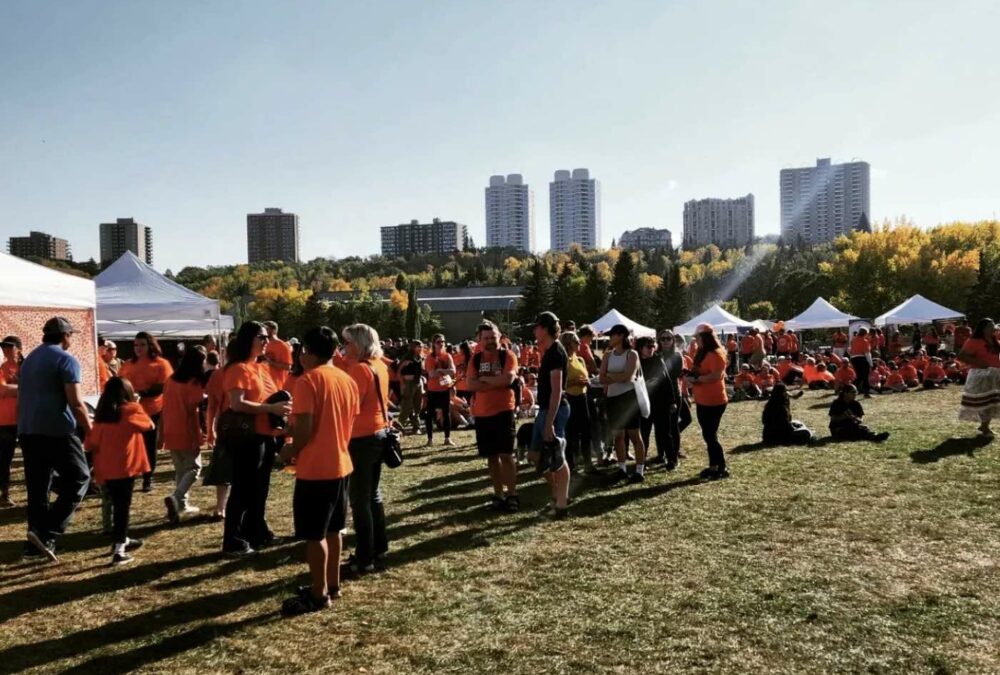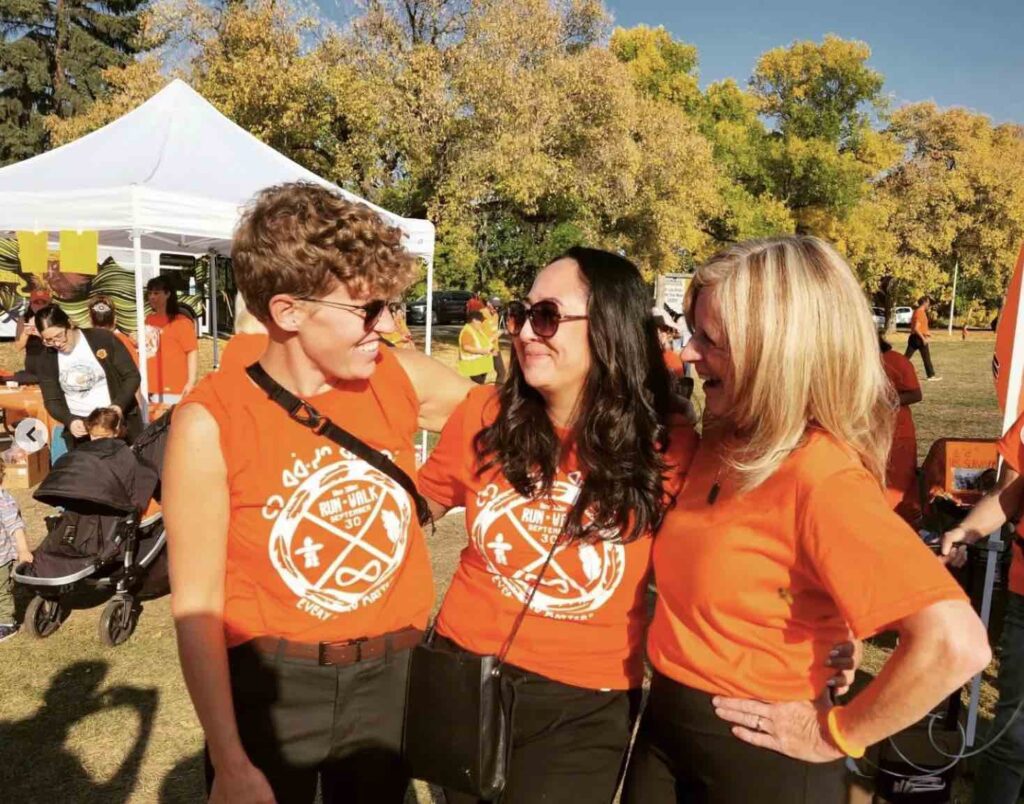Running’s healing role on Orange Shirt Day (and every day)
For Edmonton lawyer and Indigenous race director Anita Cardinal, "Running is ceremony. It is healing and it is sacred"
 Photo by:
Anita Cardinal
Photo by:
Anita Cardinal
On Saturday, Anita Cardinal of Edmonton will be directing the third annual Orange Shirt Day Run/Walk event–one of many such runs around the country–with distances of 2.5K, 5K and 10K. The run is held on Sept. 30, the National Day of Truth and Reconciliation, and aims to continue raising awareness about residential schools while honouring and remembering all those who attended–and especially those who never made it home.
Cardinal is Nêhiyaw (Cree) and a member of Woodland Cree First Nation situated on Treaty 8 Territory, and says she is also: “an ultra-trail runner, a wife, mother to three sons and kokum (grandmother) to five-year-old Niko.” Cardinal spoke to Canadian Running about the powerful cultural significance running holds for her, and shared some ways runners can honour Indigenous peoples year-round.
A lifelong passion for running
Cardinal, a lawyer in Edmonton, strives to work toward justice, truth and upholding treaty rights for Indigenous peoples. Outside of work, she shares her passion for running through the group Indigenous Runner YEG, which aims to support diversity in running and provide a safe space for Indigenous athletes.
Running has always held power for Cardinal. “Running has saved me in so many ways. It has taught me perseverance, and it has brought me closer to ceremony,” she explains. “My father was a runner, and he would often travel to the next town to visit my mother, who lived about a marathon distance away, showing up on her doorstep in a few hours like a breeze.”

Cardinal’s father passed his love of running down, and she felt inspired to create the group Indigenous Runner YEG after noticing a lack of diversity within the running community: “I have been running since high school, and I have entered countless races and often felt very alone because I would look around me and not see anybody who looked like me.”
Starting the Orange Shirt Day run/walk
Creating Indigenous Runner YEG, followed by the Orange Shirt Day Run/Walk was “a way to bring others together in our love for trail running and take back the trails our ancestors travelled,” Cardinal says, sharing that after 215 unmarked graves were found in Kamloops B.C., she felt overwhelming grief. “To help deal with that grief I went into ceremony: I turned to running.”
Cardinal knew that people needed to come together to feel hope and begin healing, and she started the Orange Shirt Day/Walk as a tool on the path forward. “We have sold out the last three years, and I’ve heard nothing but amazing things about how this has helped others on their way to truth and reconciliation,” she says.
“Running is ceremony”
Cardinal calls running “the heartbeat of Mother Earth,” and says that “running is ceremony, it is healing and it is sacred.” She says her ancestors have been running on Turtle Island since time immemorial, and have run for many different reasons: “communication between nations and communities, for hunting, and for the pure joy of it.”
Cardinal strives to remember that she is honouring the earth as she runs and that “our ancestors run with us.” She explains: “Sometimes when I run, I hear another set of feet running with me and I know I am not alone and I know my ancestors are with me.”
Race directing and inclusivity in running
“I would like to see more race directors doing a better job at acknowledging the land that they run on and offering spots for Indigenous runners,” says Cardinal. In 2022, the ultrarunner competed at Javelina Jundred, a renowned ultra in Arizona, as part of the Native Women Running team. “They honoured the Native Women Running organization by giving them registration spots fully paid for, and by putting their tent right beside the start and finish,” Cardinal says. “They held space for us as Indigenous runners, and that was a game changer.”
Cardinal wants to see this kind of inclusivity in Canada, and hopes to expand from the race she has started so that more people can experience the inclusivity and support that she felt at Javelina.
Honouring Indigenous peoples year-round
“Truth and reconciliation is not just one day,” Cardinal says. “It is every day. We must hold space for and honour the memories of all those children who did not come home from residential schools, and speak their truth with action, because every child matters,” she says. “Is important to acknowledge the experiences of all those who attended residential school and their families, honour them through a commitment to listening to the truth, and educate oneself by attending events in your area to lend support.”
For more information, head to Indigenousrunner.com.

